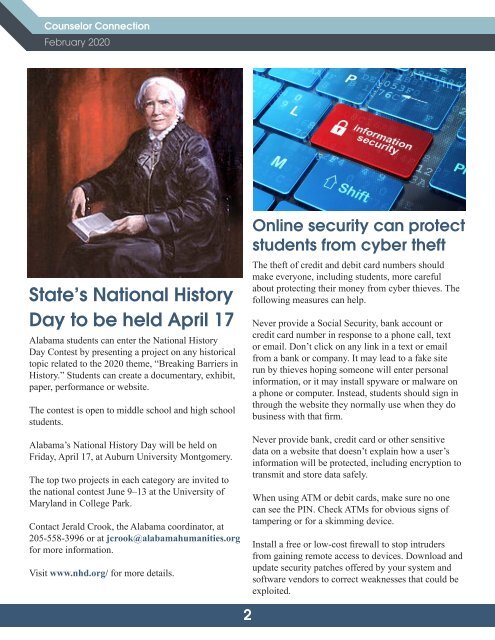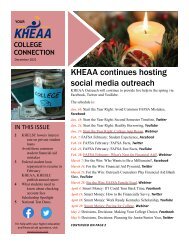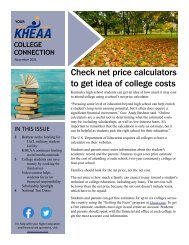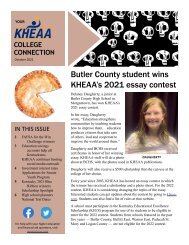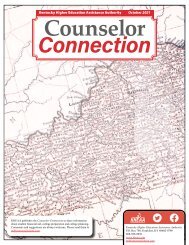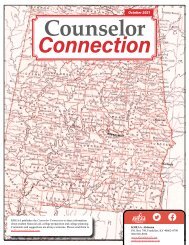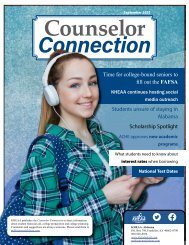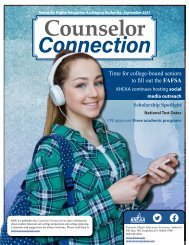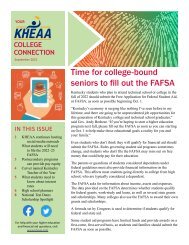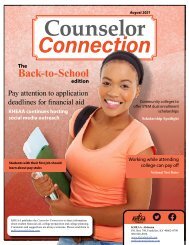AL - Counselor Connection - February 2020
Create successful ePaper yourself
Turn your PDF publications into a flip-book with our unique Google optimized e-Paper software.
<strong>Counselor</strong> <strong>Connection</strong><br />
<strong>February</strong> <strong>2020</strong><br />
State’s National History<br />
Day to be held April 17<br />
Alabama students can enter the National History<br />
Day Contest by presenting a project on any historical<br />
topic related to the <strong>2020</strong> theme, “Breaking Barriers in<br />
History.” Students can create a documentary, exhibit,<br />
paper, performance or website.<br />
The contest is open to middle school and high school<br />
students.<br />
Alabama’s National History Day will be held on<br />
Friday, April 17, at Auburn University Montgomery.<br />
The top two projects in each category are invited to<br />
the national contest June 9–13 at the University of<br />
Maryland in College Park.<br />
Contact Jerald Crook, the Alabama coordinator, at<br />
205-558-3996 or at jcrook@alabamahumanities.org<br />
for more information.<br />
Visit www.nhd.org/ for more details.<br />
Online security can protect<br />
students from cyber theft<br />
The theft of credit and debit card numbers should<br />
make everyone, including students, more careful<br />
about protecting their money from cyber thieves. The<br />
following measures can help.<br />
Never provide a Social Security, bank account or<br />
credit card number in response to a phone call, text<br />
or email. Don’t click on any link in a text or email<br />
from a bank or company. It may lead to a fake site<br />
run by thieves hoping someone will enter personal<br />
information, or it may install spyware or malware on<br />
a phone or computer. Instead, students should sign in<br />
through the website they normally use when they do<br />
business with that firm.<br />
Never provide bank, credit card or other sensitive<br />
data on a website that doesn’t explain how a user’s<br />
information will be protected, including encryption to<br />
transmit and store data safely.<br />
When using ATM or debit cards, make sure no one<br />
can see the PIN. Check ATMs for obvious signs of<br />
tampering or for a skimming device.<br />
Install a free or low-cost firewall to stop intruders<br />
from gaining remote access to devices. Download and<br />
update security patches offered by your system and<br />
software vendors to correct weaknesses that could be<br />
exploited.<br />
2


